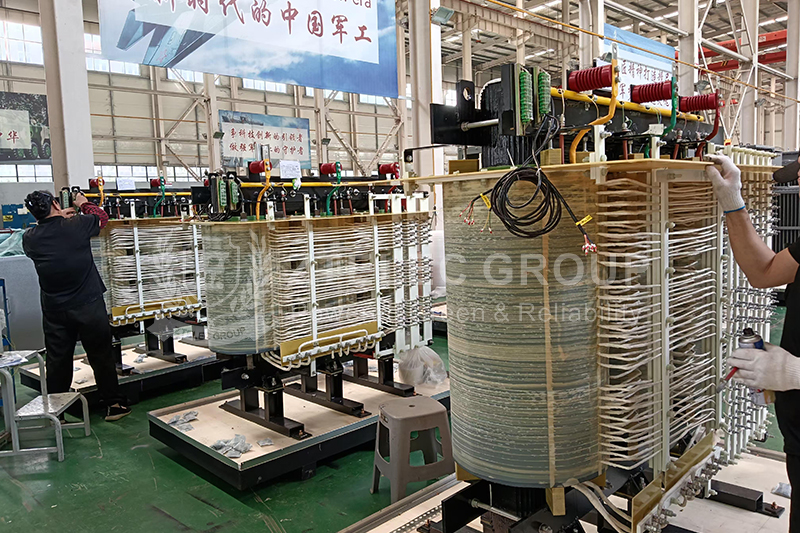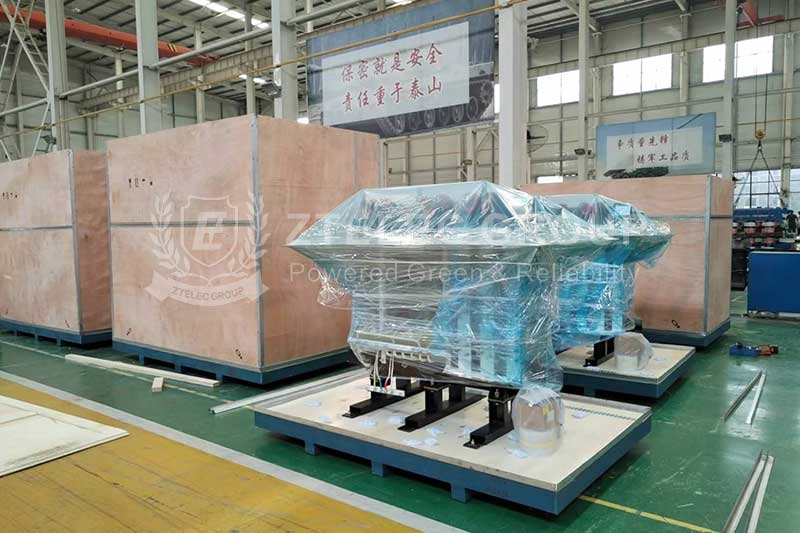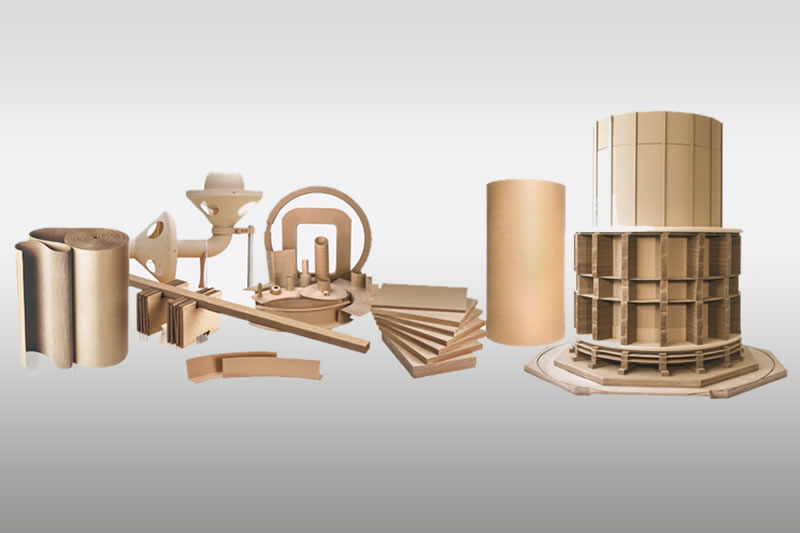Upgrade Your Electrical System with Dry-Type Transformers
Why Choose Dry-Type Transformers?
✅ Oil-free design: Dry-type transformers are fireproof and explosion-proof, making them ideal for high-safety environments like hospitals, subways, and chemical plants.
✅ Environmentally friendly: They are free from toxic materials such as PCBs and fully comply with RoHS and REACH regulations.
✅ High efficiency & energy saving: Dry-type transformers meet IE3/IE4 energy efficiency standards, offering lower losses compared to oil-immersed transformers.
✅ Maintenance-free: No need for oil testing or leak monitoring, significantly reducing operation and maintenance costs.
✅ Compact & indoor-friendly: Designed for indoor environments with limited space, such as distribution rooms and IT server rooms.
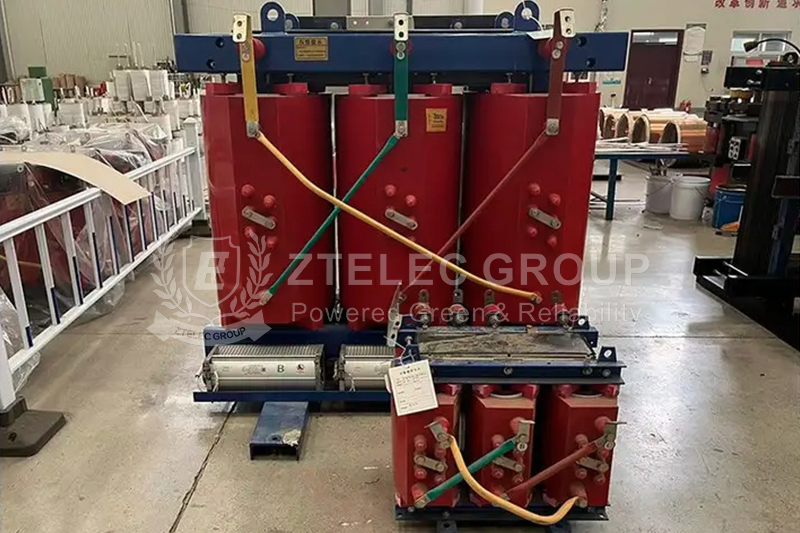
How to Upgrade Your System Using a Dry-Type Transformer
1. Evaluate the Existing Power System
Load demand assessment is crucial. Calculate peak and average loads, include margin for future expansion, and define input/output voltages. For non-linear loads like inverters and LEDs, consider an anti-harmonic dry-type transformer to ensure stable operation.
2. Select the Right Dry-Type Transformer
| Parameter | Recommended Option |
|---|---|
| Type | Epoxy resin cast (high protection) or VPI (cost-effective) |
| Insulation Class | Class F (155°C) or Class H (180°C) |
| Protection Class | IP55 (sealed) or IP23 (ventilated) |
| Cooling Method | AN (self-cooled) or AF (forced air-cooled) |
3. Installation and Commissioning
Ensure the installation site is well-ventilated, clean, and dry. Leave adequate space for heat dissipation, and never block the top of the transformer. Choose a wiring method based on load characteristics, and install protection devices such as overload relays and temperature controllers to enhance safety.
4. System Optimization
Parallel operation with redundant design improves system reliability. Ensure impedance matching between transformers to avoid imbalance.
Install harmonic filtering components like reactors or active filters to minimize distortion and maintain power quality.
Use intelligent monitoring systems to track key parameters such as temperature, voltage, and load. This enhances preventive maintenance and operational accuracy.
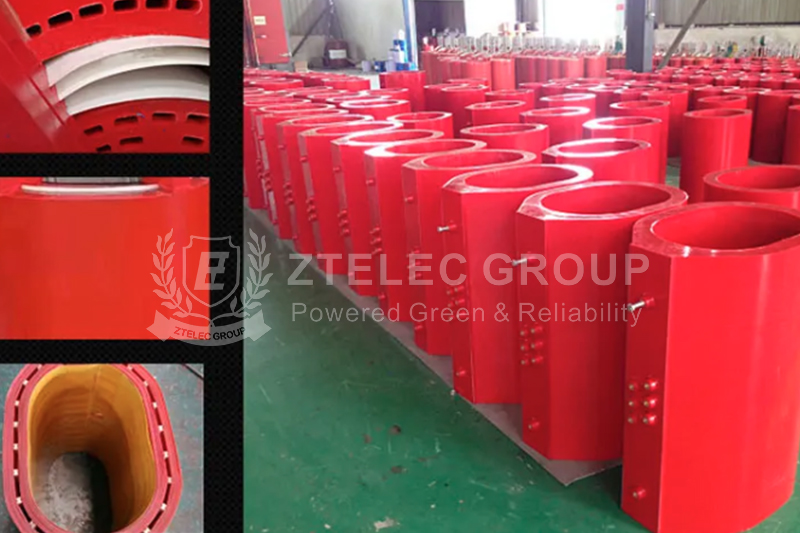
Typical Application Scenarios
Commercial Buildings
Upgrade from fire-risk oil-immersed transformers to low-noise dry-type transformers, ideal for office buildings, malls, and hotels where quiet, clean power is essential.
Industrial Plants
In factories with high harmonic loads (welders, VFDs, arc furnaces), dry-type anti-harmonic transformers prevent overheating and extend equipment life.
Renewable Energy Systems
Dry-type transformers support photovoltaic and wind power installations by withstanding inverter-induced harmonics, while enabling remote operation and monitoring.
Data Centers
Critical power applications demand redundancy and efficiency. High-performance dry-type transformers reduce energy loss and improve uptime in server environments.
Maintenance and Life Extension Tips
Annual Inspection
Remove accumulated dust from windings, check for loose fasteners, and ensure system integrity.
Temperature Management
Maintain proper insulation through active temperature control. Calibrate sensors regularly to maintain monitoring accuracy.
Load Monitoring
Avoid prolonged underload conditions. Real-time load tracking enables efficient transformer use and helps identify potential system imbalances.
- more+releated article
- 2026-01-04Common Power Transformer Faults: Causes, Solut
- 2025-12-312026 New Year Holiday Notice
- 2025-12-31Operation, Maintenance, and Service Life Manag
- 2025-12-30How to Select a 100 kVA–500 kVA Distribution
- 2025-12-29The Impact of NHN NMN Composite Insulation on
- 2025-12-26Practical Application of GPO-3 Insulation Boar
- 2025-12-2510kV Transformer Replacement Timeline: Install
- 2025-12-25Low Smoke EN45545 GPO3 UPGM203 Laminated Board
- 2025-12-24Merry Christmas — ZTelecgroup Christmas Cele
- 2025-12-24How to Select a Suitable 50kVA–500kVA Distri

